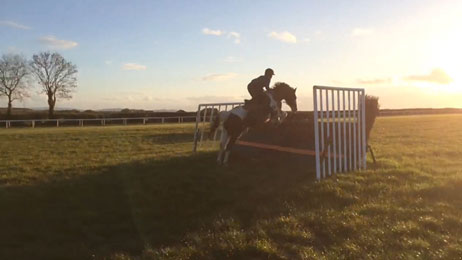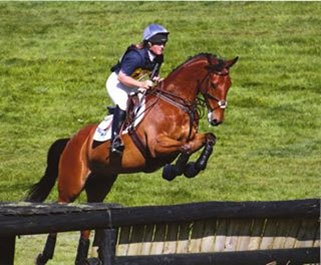Where do we go from here?

I wanted to write something funny. Truly, I did. But I don’t feel funny. I just feel sad.
Yet another rider has lost their life to the sport that they love. That’s three in the first three months of the season, for those of us in Europe. The numbers are all there to be looked at, but no one has a solution. Every rule change makes it worse. The burden of responsibility is being shouldered by everyone and yet also no one. No one even knows where to begin any more.
I was working in the UK in the year 2000. A bumper spate of loss of life through rotational falls occurred in 1999 when five riders in quick succession were killed eventing. One of those riders -Peter McLean – had been the stable jockey for my then employers. The yard was never the same again. Every person there was profoundly and deeply affected by his loss and that doesn’t even begin to touch on the devastation suffered by his family. Polly Phillips was also killed in the same year. She was my vet when I was based in the UK. There have been so many riders killed – 59 actually, since 1993 – before and since and at least one of those deaths has somehow had an impact on most of you reading this.
In recent times, I have been cross country schooling a young horse. I left the sport I loved four years ago, not because of the danger but because of everything else. The cost, the time, the lack of horses. Recently though, I have been reminded of how much I loved eventing. I have been secretly planning a few little events and today I even tried on a new body protector in a tack shop I was in. I love the sport, I love the people, I love writing about it, I love watching it. I love just drinking it all in. There is nothing that compares to eventing.
Nothing except maybe, being alive.
The most recent death of Philippa Humphreys is one that I can’t get out of my mind. A six-month old child has been left without its mother. Philippa was a skilled and experienced horsewoman, yet she paid the ultimate price and now her little girl has no mummy. I guess this one in particular resonates with me because I have a two-year-old son and I couldn’t imagine facing life without my partner. Of course, life happens and there are risks for all of us all the time-crossing the road, driving the car, walking up the stairs. It’s just that somehow I feel that it isn’t acceptable to put your foot in the iron heading to the cross country start, and have no idea if you will still be alive at the end of it. In my mind it’s not the same as ‘might get hit by a bus’ and yet we so love our sport, we are so desperate for tragedy to not affect or damage or destroy our sacred sport, that we justify and rationalise in exactly this way.
I don’t know what the answer is. This past week I have read every on line argument and counter argument there is. Professionals at the pinnacle of the sport are arguing about too much or not enough discipline being the problem. Others are pontificating on fence profiles. Some are picking holes in Minimum Eligibility Requirements. Some believe that the short format is destroying our horse fittening and management. One stated that too much magnesium was to blame. Another felt that horses were brain fried looking at so many skinnies and combinations. It goes on and on. It’s like chaotic white noise and inward finger pointing, and not one person is any wiser because of it.
I think we need to STOP.
During the week, American event rider Jules Cournane (nee Stiller) made some (in my opinion) excellent points. We need to change nothing right now. We need to establish a ground zero, and begin collecting data. Everything from fence types, ground conditions, weather conditions, blood and urine tests of horses and riders – EVERYTHING and ANYTHING you can think of. A thorough review of past deaths, new criteria for examining recent and future fatalities, interviewing riders who have survived these type of falls with or without lasting effect, also looking at horses that have survived these falls – a thorough all over work up, no stone left unturned. Begin to create a statistical base and add past and real time information to it to help us all to become more informed, more able to predict, more able to truly try to prevent children being left without a parent or a parent being left without a child. This is far from a solution, and to implement an undertaking like this would be hugely expensive, time consuming and difficult thing indeed. It was still by far the most intelligent suggestion I have heard amid all of the white noise.
I look at my beautiful son lying on the floor of the tack shop-laughing at me telling him to get up-and I can’t bear to entertain the thought of missing one day with him. I hang the body protector back on its hanger for now, and I walk away.

